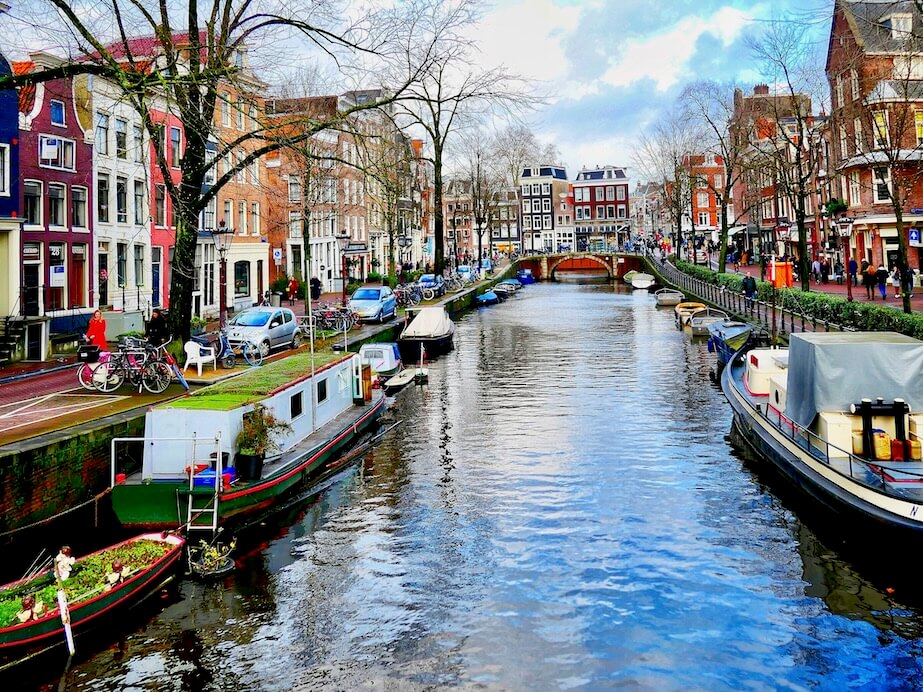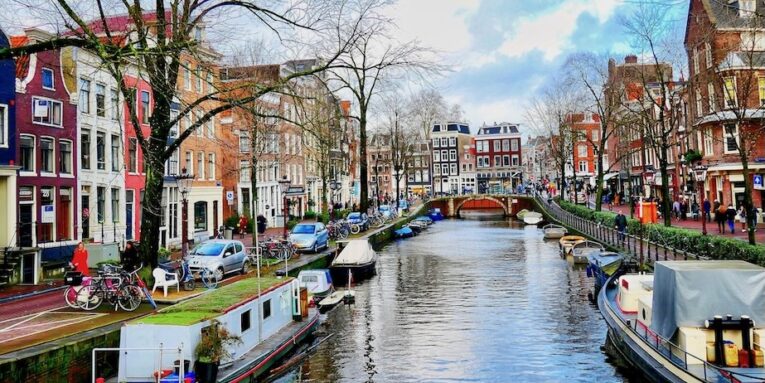Famed for its charming windmills, fields of tulips, and delicious cheese, the Netherlands is one of Europe’s most popular countries to visit. But it might come as a surprise to know that around 200,000 people move there every year to work and experience a new life.
While the move is relatively simple for those coming from European Economic Area (EEA) countries, it’s a little trickier for U.S. citizens. This article details everything Americans need to know to relocate to the Netherlands, from residence permits to finding accommodation and Dutch language requirements.

Residency permits and citizenship
U.S. citizens looking to move to the Netherlands need to apply for a residence permit, which can be extended as required. If you are moving for work or transferring within a company, your employer can apply for the residence permit, along with a work permit (see below).
Americans who have lived in the Netherlands for at least five years are eligible to apply for a permanent residence permit. This requires registration with the Municipal Personal Records Database (BRP) and proof of the financial means to support yourself.
After living in the Netherlands for at least five consecutive years, residents are eligible to apply for Dutch citizenship. This is provided you have had a valid residence permit throughout your stay in the country and that you can meet the Dutch language requirements.
Finding a job in the Netherlands
Americans who aren’t moving as part of a company relocation may need to find work on arrival in the Netherlands. Generally speaking, Amsterdam is the easiest city to find work, with many international companies and businesses based here. Particularly in demand are skilled professionals in electrical engineering, finance, manufacturing, and medical health care.
Foreign citizens from outside the EEA who want to work in the Netherlands need to apply for a Dutch work visa with the UWV (Employment Insurance Agency). This requires your employer to show that they cannot find a skilled individual within the EU to fill the role. That being said, there are some categories of workers where the conditions are not as strict for obtaining a Dutch work visa.
Search for suitable accommodation
As a new arrival in the Netherlands, you have two options when it comes to accommodation. It’s possible to secure short-term rental accommodation for the first few weeks, giving you time to search for a long-term solution once you are settled. Alternatively, you can find suitable accommodation online and negotiate a lease with the landlord before departing the United States, then move straight in on arrival.
Thanks to rental websites like Rentola, it’s easy to find hundreds of property listings throughout the Netherlands, whether you’re looking for an Amsterdam rental, an apartment in Ghent, or a spacious family home in Rotterdam. Simply input your preferred location, number of bedrooms, and price range into the Rentola search parameters, as well as the property type.
Rentola boasts the largest number of private property listings to rent in Amsterdam (2,000+), making it a one-stop shop for expats searching for a new home in the Netherlands. With Rentola, there’s no need to spend hours searching multiple sites or comparing prices when it’s all available in one place.
Budget considerations
Before moving to the Netherlands, it’s important to be aware of the costs of living and ensure you will be earning enough to meet your needs. Amsterdam and The Hague are among the most expensive cities in the world and you need to be earning at least €2,000 a month to live comfortably.
Rental prices in the Dutch capital are between €1,500 and 2,500 per month for a two-bedroom apartment while the same in Groningen costs around €1,275. For more affordable housing, look outside the city centres and tourist areas or in neighbouring towns within commuting distance.
Moving to the Netherlands
Once your Dutch visa has been issued and the residence permit application has been approved, you can now move to the Netherlands. Within a few days of arriving in the country, it’s important to register your residence at the town hall within the municipality you plan on living in.
It’s also advisable to obtain health insurance shortly after arriving as you will not be eligible for government-funded health cover until becoming a permanent resident. Opening a local bank account is also a good idea, ensuring you can be paid swiftly as soon as you start work.
Dutch language requirements
While foreign residents need to meet Dutch language requirements when applying for citizenship, it is not mandatory on a day-to-day basis. Many companies in the Netherlands conduct their business in English and it is widely spoken by locals. That being said, knowing some Dutch will aid in communicating with coworkers and neighbours, and greatly enhance your experience living in the Netherlands.

